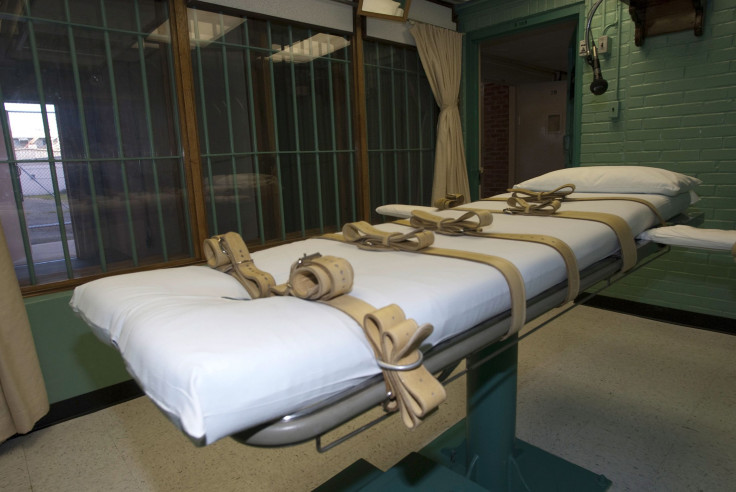Alabama Executes Torrey Mcnabb, Man Convicted For 1997 Murder Of Montgomery Officer

The state of Alabama Thursday executed a man by lethal injection, convicted for the 1997 murder of a Montgomery Police Cpl. Anderson Gordon III by shooting him multiple times in his patrol car.
The Supreme Court lifted a stay of execution against Mcnabb earlier on Thursday evening. The decision of the court reversed a lower court ruling that had stopped the execution of the convict amid rising questions about a pending lawsuit, which challenged the state's method of putting inmates to death. Justice Clarence Thomas wrote that the lower court had failed to find that McNabb would likely succeed in his challenge.
"Because the District Court enjoined Respondent’s execution without finding that he has a significant possibility of success on the merits, it abused its discretion," Thomas wrote, according to USA Today. "We accordingly vacate the injunction."
Mcnabb's execution was the fifth execution Alabama has conducted since January 2016, and the procedure finally took place almost exactly 20 years after the convict shot and killed the police officer.
McNabb, 40, was pronounced dead at 9:38 p.m. EDT at the Holman Correctional Facility in Atmore, Alabama.
"Mom, Sis, look at my eyes. I have no tears in my eyes. I‘m unafraid," he was quoted as saying in his final statement by prison officials, Reuters reported.
Mcnabb reportedly raised both middle fingers towards the witness galleries, while he was strapped to a gurney as the execution began. He moved slightly and appeared to breathe for the first 20 minutes of the execution. Witnesses in the room, including his two attorneys and his two sisters, raised concerns that he was not unconscious. He was declared dead at 9:38 p.m. EDT.
The state of Alabama has executed Torrey Twane McNabb pic.twitter.com/lmlYqMqx7z
— Connor Sheets (@ConnorASheets) October 20, 2017
On Thursday evening, Alabama Department of Corrections Commissioner Jeff Dunn said they followed proper procedures in conducting the execution.
"I’m confident he was more than unconscious at that point," he said. "Involuntary movement is not uncommon. That’s how I would characterize it."
Prison officials said Mcnabb refused to have breakfast on Wednesday and also did not ask for a final meal. The inmate also said that the prison chaplain should not enter the death chamber with him; even though a chaplain had been present, he did not pray with Mcnabb.
Mcnabb shot Gordon on Sept.24, 1997, while the officer was in a parked police car responding to an accident. The convict had also fired at another officer, who pursued him before police finally captured him.
In January 1999, at his trial, Mcnabb confessed to killing Gordon and apologized to his family, saying that he had ingested a large amount of cocaine that day, which made him paranoid when he saw Gordon. His attorneys argued the same during that trial.
Gordon's family on Thursday thanked the attorney general's office, the Montgomery Police Department, and other attorneys who played a major role in the case, according to USA Today affiliate Montgomery Advertiser.
"Over twenty years ago, we lost a companion, a father, a brother, and a friend who only wanted to make a difference in his community," the family said in a statement. "'Brother,' as he was affectionately called, worked to make a difference in his community until his life was taken on September 24, 1997."
© Copyright IBTimes 2024. All rights reserved.






















